It’s a sad truth that being asked to play at a wedding can be mighty stressful for the organist, far more so than playing for a funeral. If the wedding music goes awry fingers will be pointed at you, so my advice is to operate in damage-limitation mode from the moment you are asked. Here are the trip-wires to look out for.
Timings
Yes, of course the bride will be late. The wedding participants will think this very droll, and a great story for afterwards. You are tearing your hair out because you are running out of music to play, have another service to play at, have a hospital appointment, have promised to pick up an aged relative at 4pm. I suggest you don’t fix ANY personal appointments until well after the time the wedding might end, as even informing the bride’s family in advance that you have to skedaddle at 3.50 sharp won’t help you. Stuff your organ bag with loads of vaguely cheerful music. If you get to the end of it and the bride still hasn’t arrived, play it all over again, but with different registrations.
The money
The wedding gown will have cost thousands, no expense has been spared on a flower arch, bunting, novelty signage, cup-cakes, an Instagram photo booth, and a buddhist fire-pit for the evening party. But pay for a trained musician to give several hours of their time to prepare and play, rehearse even? Woo. Bit of an ask for some people. If you’re paid through your church then with a bit of luck the parish will mop up the ghastly business of negotiating your fee, and extra for recording and videos. Otherwise decide your fee and simply state it in an email. Don’t apologise, don’t explain.
Coping with singers
There will be a singer – hopefully a competent semi-pro, but make no assumptions. They may have stage presence and a lovely voice, but if you ask what key? and get a blank stare, then take control. I’ve known organists handed a karaoke-style chord cue sheet on the day. So unless you’re rock steady sight-reading up to five sharps and flats, with top-notch harmonisation-at-sight and transposition skills, insist on having sight of any music chosen by others well before the Big Day.
On the subject of accompanying singers, transferring to the piano may help you both. Inexperienced singers find the unfamiliarity of the organ disconcerting, and you yourself can probably make a better fist of the second-rate popular music you’ve been handed on the piano, rather than the organ.
What to play and how to play it
Politely refuse to play music that’s beyond your pay grade. (Yes, I mean the Widor Toccata, which is really the domain of the diploma-wielding professional, who is very unlikely to be reading this article.) Say ‘I’m afraid it’s not currently in my repertoire’, or better still, ‘Sadly, it just won’t work on this particular organ’ with an air of brisk finality.
However, don’t be put off the other big wedding standards. No need to attempt the Bridal Chorus from Lohengrin from music that’s thick with giant chords and double-pedalling at the end. There are loads of arrangements for all levels of organist. Find a version that you can play with confidence (nothing worse than a wobbly Wedding March), pull plenty of 8 foot stops for a solid sound, and off you go.
Running out of music: there are two places where this will happen – before the wedding (see above), and during the Signing of the Register, which can feel like eternity. Control your rising panic by playing something with lots of short sections and handy repeats (Handel’s Water, or Fireworks Music spring to mind) which you can quickly bring to a nifty close as the wedding party sweeps back in.
Don’t expect full-throated singing for the hymns – there’ll be lots of non-church goers there, unfamiliar with the genre. Make sure you check the verses of the hymns printed in the wedding service sheet with the hymn book you are playing from, as I can guarantee they won’t always tally. (Lots more on this in my beginners’ guide to playing for funerals.)
Your final piece: The first sixteen-or-so bars of your going-out music are the ones that matter. After that all you are is wallpaper, while the wedding action moves on to throwing confetti and chattering nineteen-to-the-dozen after the huge strain of having to be quiet and attentive for the previous hour-and-a-half. Only you (and any off-duty organists who happen to be at the wedding) will appreciate the work you have put into the finger-sapping twenty-four bars of continuous trilling at the end of the Mendelssohn.
I will now take my grumpy hat off, and say that of course, not all weddings have to be like this. A family with some musical ideas and knowledge will be a pleasure to work with. Some will genuinely want your advice and guidance: both you and they will find Philip Norman’s excellent pages on Wedding Music on his ORGANISTS ONLINE website helpful. And what a joy it can be to be asked to provide the music for the wedding of a close friend or family member – when your contribution is both valuable and valued.
Tell me your own stories in the comments below …

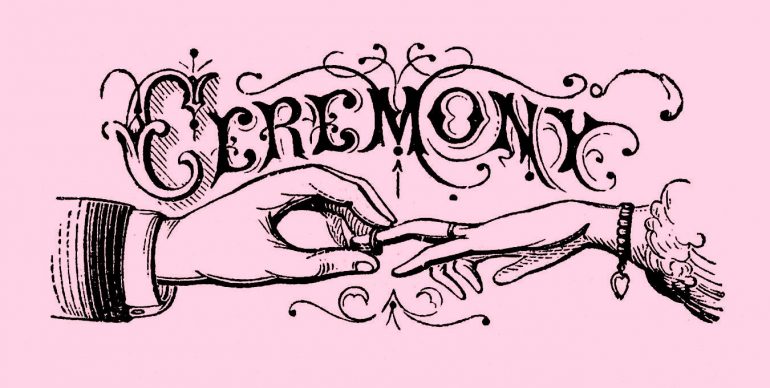
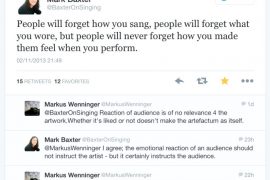
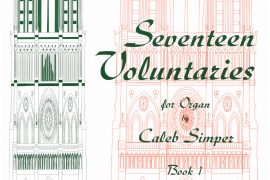
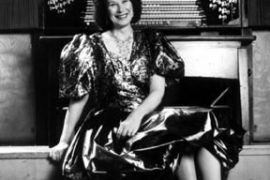
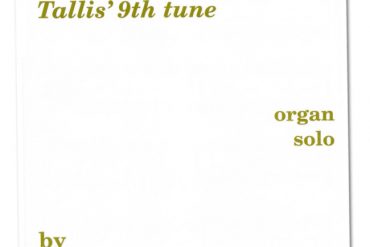
It’s not just the organist and choir who dread the late arrival of the bride. Ringers (if engaged) do as well. If you ring before the wedding, when do you stop? And waiting to ring afterward the ceremony can be very boring if you are stuck up the tower with no back view of the ceremony and its participants. And if someone forgets to signal that the bridal couple are coming down the aisle, you are not popular. (You can’t always hear the organ.) Mercifully rope fees are decided well in advance, though they vary widely from tower to tower.
Gosh yes Anne, it hadn’t crossed my mind that the ringers can have an even more tricky time of it than the organist! Must have a chat with our ringers and see if they have any stories to tell…
Comment Text…I want to learn it
Loved the article, and it is very correct! I’ve got my share of stories too. There’s the one where they wanted “Jesu Joy as Man’s Desiring” for bringing in the mothers, only to want me to end as soon as the ladies were seated. That didn’t get me to the entrance of the chorale. Another was one I didn’t play for because the couple’s church was undergoing a major construction project. When the happy couple gathered up their things, they tossed in my organ shoes which had been hanging on a hall tree. They didn’t realize anything was wrong until they turned in their rental clothes and couldn’t figure where the extra shoes came from. I eventually got them back by way of North Carolina– I live in Ohio. Oh, there’s more. I should write a book.
I’m amazed you got them back at all!
An excellent article!
Don’t forget that if the bells can be heard in church and ring beforehand, it’s best to play in related keys. Ours are roughly in G so F major sounds awful!
We have a signalling system from the west door before the bride arrives. Big arm circle keep going, little circle get ready to stop (though photos may take some time) and slice across neck – stop! I find I need a slower piece while this is going on so that I can swivel and look over my shoulder – Rhosymedre (Vaughan Williams) works well and can be repeated, but I also have a selection of other pieces open on the desk so that I can segue into the next one. This year one bride was 40 minutes late!
Also, I now provide a draft order of service with hymns / songs inserted. It saves time, though I still proof read the final version.
And, at the end, if you’re worried about playing a difficult piece get your vicar to start applause as the couple walk down the aisle!
Getting the vicar to start applause – excellent idea!
Black Hills of South Dakota, scenic and beautiful year round, attract couples for destination weddings located in the Chapel in the Hills. Google Search will yield lovely snapshots. A replica of a Norwegian StavKirke, the chapel built of wood, carvings, and benches, a lepers’ gallery, has no central air conditioning or heating. A small retired church organ, an Allan digital two manuals with pedal keyboard and approx. 10 working stops. The variety of bridal participants, clergy, friends of the bride/groom soloists, trumpet players have made an outstanding experience playing for weddings. November 2023 lovely Rowan Grace of “The Voice” sang along with an ensemble from Central High School. And the standards by Mendelsohn, Bach, and Wagner are usually requested although a Pete Seeger original tune was featured one time. Grand fun!! So glad my teachers insisted on practice and taught theory.